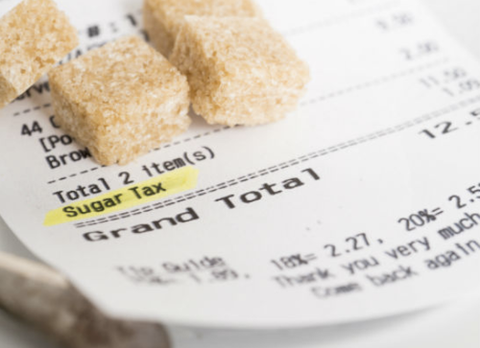Making the healthy choice when it comes to your diet is easier said than done. Sugary snacks and drinks, sodium filled entrees, and foods loaded with carbohydrates are seemingly within arm reach at virtually all restaurants and grocery stores. In short, the temptation is everywhere.
Some municipalities, however, are taking measures to penalize frequent consumers of sugary drinks – and they’re hitting them where it hurts – their wallets.

You may remember the City of Berkeley becoming the first U.S. city to enact a one-cent per ounce tax on sugar-sweetened beverages such as regular soda, energy drinks, sports drinks, sweetened juices, flavored waters, and Ready To Drink sweetened coffees and teas.
Berkeley voters passed this law in Nov. 2014 and it took effect on March 1, 2015. Two years later, health researchers say the sugar tax is working. In the year following the implementation of the tax, researchers discovered the volume of sugar-sweetened beverages sold in Berkeley declined by 9.6%, while sales of bottled water rose 15.6%.
The tax, which adds 68 cents to the cost of a two-litter bottle of soda, has added $2.5 million to the city’s coffers (as of the beginning of this year). The funds are earmarked for children nutrition and community health programs.
Zsweet's Take
So where does Zsweet stand on government taking a more active role in our daily lives as it pertains to nutrition? The experiment in Northern California seems to be working. Should larger cities with wider reach adopt a similar policy?
It certainly wouldn’t hurt, but Tim Avila, one of the founders of Zsweet, says wholesale changes in behavior are required if we wish to put a meaningful dent in sugar consumption.
“The taxes may help somewhat, but behavior modification resources will go much farther in getting people healthier and stemming the rise in metabolic disease,” said Avila. “The entire category of lifestyle products that you find in a Whole Foods Market is driven by individual lifestyle demand based on changing habits.”
 Those changing habits stem from a growing chorus of groups that have rejected sugar. We believe a health change motivated by consumer choice carries significantly more influence than one derived by monetary manipulation in the form of a tax.
Those changing habits stem from a growing chorus of groups that have rejected sugar. We believe a health change motivated by consumer choice carries significantly more influence than one derived by monetary manipulation in the form of a tax.
“While Whole Foods clearly sells a boatload of sugar and cheap carbohydrate based products, the tribes that exist in that world that have rejected sugar are growing,” Avila continued. “The main thing that legislation and regulation can do is to inconvenience the big boys and force some change there.”
Avila explains that we already see that happening with Big Food and Big Beverage. Those industries have acquiesced to changing consumer demand with major initiatives to reduce sugar by half, or calories by at least 30%. You see it in products that once held 150 calories, transition into a 100-calorie offering.
There certainly isn’t a silver bullet that will solve our sugar dilemma. A multilayered approach that takes advantage of behavior modification, nutrition education at the earliest levels, parental responsibility, and government intervention would go a long way in cultivating a healthier society.
